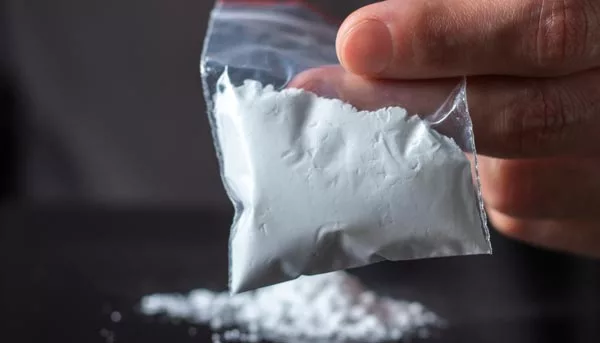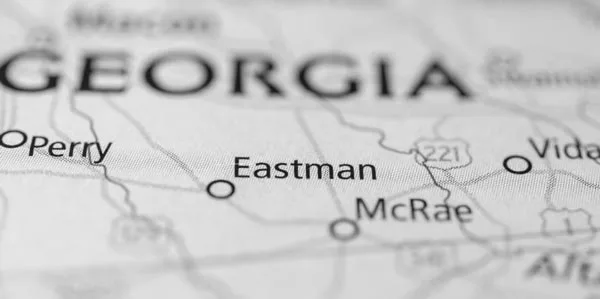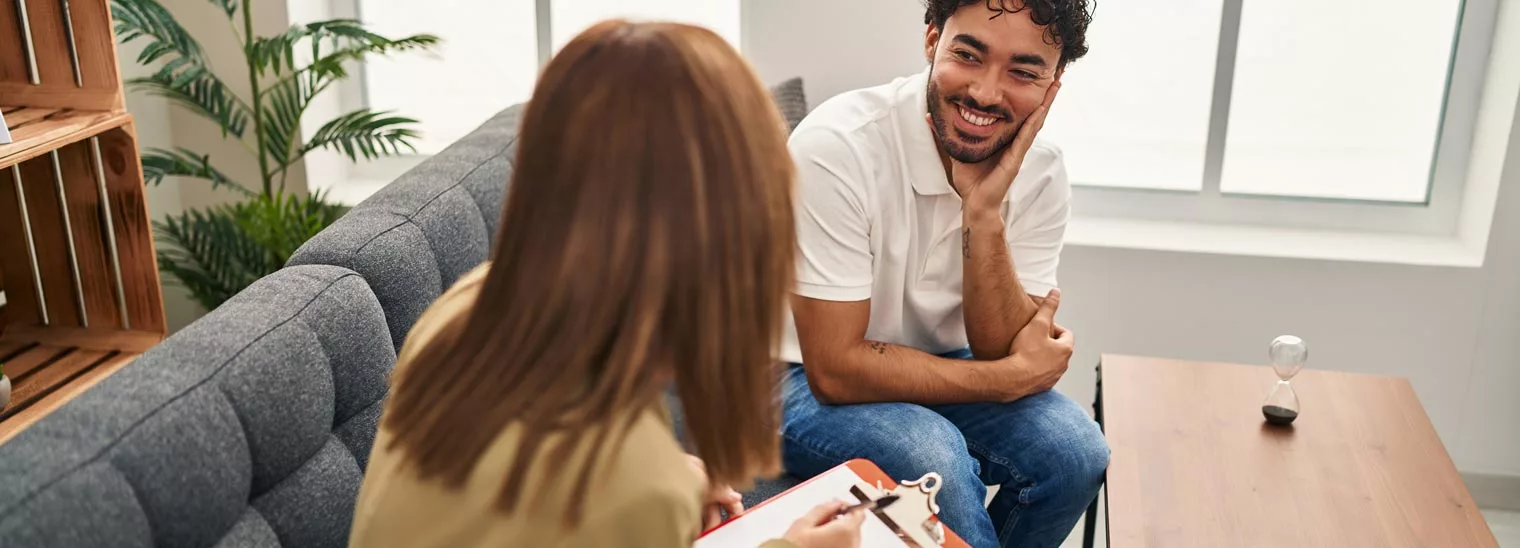Get Effective Help for Cocaine at Ingrained Recovery
During the last decade, cocaine addiction has taken a back seat in many states due to the influx of large amounts of fentanyl and methamphetamine. And while Georgia is no stranger to either, cocaine addiction is still alive and taking its toll on cities like Atlanta, Macon, Savannah, and other areas of the Peach State.
Despite the decline in national use, cocaine addiction is still a serious and life-threatening issue. A comprehensive effort is still required, along with the direction of a high-quality treatment center.
Luckily, places like Ingrained Recovery are leading the way, and setting an example for other facilities regarding quality cocaine addiction treatment in Georgia.
If you or someone you love suffers from cocaine abuse, this article is for you. We take a closer look at evidence-based methods used to treat cocaine addiction and our proven treatment programs that are crafted to give you the best foundation for long-term recovery.
Take The First Step Towards Cocaine Recovery.

Cocaine Abuse in Georgia: Programs to Support Recovery
First, let’s clarify this important fact: if you (or someone you care for) are grappling with a cocaine problem in Georgia, you are not alone.
Cocaine use and abuse are a significant problem in the Peach State, with an increasing number of people caught in its grip. There’s also a rise in the use of combining cocaine with prescription drugs, such as Xanax.
But there is effective support to get clean and sober, no matter how difficult life has become due to cocaine.
With a comprehensive suite of services, our facilities at Ingrained Recovery in Eastman, Georgia, are well established as a place for reflection, healing, and recovery success.
At Ingrained, we will help you develop coping strategies, keep you occupied with healthy activities, and prepare you for a fulfilling life free from cocaine!
Recognizing Cocaine Dependence and Addiction
Acknowledging substance abuse is a problem in your life paves the way for solutions to be found. And again, you are not alone.
Cocaine is a powerful stimulant drug derived from the coca plant and is used by tens of millions of people worldwide, with nearly 5 million Americans reporting its use in the past year!
What are the Signs of Cocaine Addiction?
Physical and behavioral indications of addiction to cocaine can vary depending on the severity of use, history with cocaine, and the method of administering the drug. Some red flags to look out for include:
- Changes in appearance and hygiene
- Weight loss (often rapid)
- Frequent nosebleeds (or burnt fingers)
- Shifts in usual behavior and manic symptoms
- Lack of sleep and insomnia
- Need for money and increased spending
The Effects of Cocaine Use: Long and Short Term
Short-term effects that keep people returning to cocaine involve intense euphoria, increased energy, and heightened alertness. Other short-term effects of cocaine can include anxiety, irritability, and paranoia.
The potential long-term repercussions of regular cocaine intake include a substance use disorder, cardiovascular issues, and mental health challenges such as anhedonia (lack of ability to feel pleasure) as well as major depression.
24 Hour Cocaine Detox And Rehab Helpline

Getting Effective Support for Cocaine Abuse and Addiction
The current challenges with cocaine in Georgia are just as concerning as year’s past. One of the most effective ways to offer assistance and promote long-term recovery is through the inpatient rehab program at Ingrained Recovery.
During the initial stages of inpatient treatment, clients will meet with the staff to undergo a personal assessment. The assessment includes a series of questions to obtain background information about your history with cocaine and other substances.
What are the Levels of Care Offered During Cocaine Rehab?
Ingrained Recovery offers both detox and inpatient programs that are designed to meet client needs of all kinds, incorporating the evidence-based therapies outlined above as well as support services.
Our programs are tailored to tackle cocaine abuse as well as any other mental health issues the person may be experiencing. Treatment options available include:
- Individual therapy
- Cognitive-behavioral therapy and dialectical behavioral therapy
- Motivational interviewing
- Contingency management
- Family therapy
- Yoga
- EMDR therapy
- Group therapy
- Equine therapy
Medical Detoxification
Medical detoxification serves as the initial step in addressing cocaine addiction. This process involves:
- Ending the use of the substance under the oversight of medical personnel, nurses, and counselors.
- Managing the physiological response that occurs when the individual begins to reduce their consumption of the substance.
- Ensuring safety and stability with our medical team at Ingrained Recovery closely monitoring the patient’s condition
Cocaine withdrawal symptoms during detoxification can include physical manifestations like:
- Vomiting
- Diarrhea
- Headaches
- Muscle aches
- Fatigue
- Irritability
- Anxiety
- Depression
Cocaine withdrawal can be challenging, but with proper care and support, these symptoms can be effectively managed and minimized.
The purpose of detox is to assist in the removal of substances from the body, facilitating the transition towards recovery and helping overcome the cocaine hangover that comes along with binges of cocaine, or longtime, chronic usage.
Observation and assistance during detoxification are core to our services, and are aimed at securing the best possible outcome for each client.
Inpatient and Outpatient Programs

Ingrained Recovery adopts a comprehensive approach to treating cocaine addiction.
Our tailored cocaine treatment programs encompass three primary components – medical detoxification, inpatient and aftercare support, as well as support groups and community resources.
At the heart of this comprehensive approach is a collaborative relationship between the client and the treatment team, ensuring the creation of a tailored plan that takes into account specific client needs, preferences, and objectives.
Ingrained Recovery’s treatment approach includes:
- Treating the physical symptoms of addiction
- Using evidence-based practices and holistic therapies
- Creating an individualized treatment plan for each patient
- Tailoring the plan to meet specific needs
- Developing coping mechanisms to prevent lapses and relapses during recovery from cocaine
Support Groups and Community Resources
Support groups and community resources are pivotal for maintaining long-term recovery from cocaine addiction by offering continuous aid and encouragement.
They offer a network of supportive peers who are dealing with similar issues, creating a safe and supportive atmosphere where members can:
- Share their stories, difficulties, and successes
- Gain valuable insights
- Obtain emotional support
- Learn coping strategies from those who have successfully overcome cocaine addiction
By participating in support groups, those struggling with cocaine addiction can gain valuable insights, obtain emotional support, and learn coping strategies from those who have successfully overcome their own struggles with cocaine abuse.
In Georgia, there are several support groups available for individuals with cocaine addiction, such as Narcotics Anonymous (NA), Cocaine Anonymous (CA), and SMART Recovery (Self-Management and Recovery Training).
Community resources offer assistance, instruction, responsibility, and availability of essential services for those struggling with cocaine in the Peach State.
A Typical Day During Cocaine Treatment at Ingrained

After the assessment, a proper determination is made regarding your treatment during your stay at Ingrained Recovery. This includes your specific modes of therapy, which can range from a number of different options. That said, a normal day of inpatient treatment looks like this:
- Wake up and have breakfast. Ingrained Recovery puts emphasis a well mind and body. We serve only the finest, top-quality food and ingredients – all of which are locally sourced and non-GMO.
- Generally after breakfast you attend an activity such as a daily meditation or similar reflective exercise.
- Usually during this time you’ll go to your first true counseling appointment of the day. This might include cognitive behavioral therapy or something similar.
- You’ll have a break for lunch before attending another form of therapy. This might include a holistic activity like our Equine program.
- Another counseling appointment in the form of one-on-one talk therapy or something similar takes place before dinner.
- Dinner is courtesy of one of the most premier chefs in the area, with several options each evening. There are always vegan and vegetarian-friendly options available as well.
- Another optional group meeting is available before our clients retire for the evening.
The specifics of your therapy schedule may change slightly based on your personalized treatment plan.
Evidence-Based Therapies for Cocaine Addiction
Ingrained Recovery’s treatment program for cocaine addiction heavily relies on evidence-based therapies. These therapies, backed by research and clinical data, have been demonstrated to be effective in aiding individuals in overcoming cocaine use disorders.
They diminish cocaine use, forestall relapse, and encourage long-term recovery. Examples of such therapies include contingency management (CM), motivational interviewing (MI), and cognitive-behavioral therapy (CBT).
Cognitive Behavioral Therapies for Cocaine Treatment

Cognitive-behavioral therapy (CBT) helps clients to:
- Identify and modify negative thought patterns and behaviors associated with drug use
- Equip individuals with coping skills, problem-solving techniques, and relapse prevention strategies
- Reduce the likelihood of relapse
Motivational Interviewing: Putting Recovery at the Fore
Motivational interviewing is another evidence-based therapy well proven in stimulant treatment, that assists clients in:
- Examining and resolving indecision concerning altering their behavior
- Recognizing their motivations for desiring to change
- Creating a plan for executing those changes
- Applying a ready framework to relapse prevention skills and planning
Contingency Management in Stimulant Treatment
Contingency management is another valuable and evidence-based approach employed at Ingrained to reinforce positive behavior and help our clients achieve lasting change in daily life. This method involves providing tangible rewards or incentives contingent upon clients meeting specific goals during treatment.
Such positive reinforcement not only encourages sustained engagement in therapeutic activities but also reinforces the idea that small steps toward positive change yield significant benefits, a valuable lesson in aftercare and beyond!
A Top Cocaine Addiction Treatment Program in Georgia
So, where and how do you find the best cocaine treatment options Georgia has to offer? Ingrained Recovery is changing the way that Georgia does recovery – all from a private estate two hours south of Atlanta.
This small but mighty fortress of solitude is creating big changes in the lives of those seeking lasting recovery from cocaine abuse.
A Holistic Approach to Cocaine Addiction Treatment in Georgia

Because of its location, Ingrained Recovery is able to truly leverage the power of a holistic cocaine addiction treatment program. Clients take advantage of a full stable of horses and experience the healing properties of equine therapy.
Our cocaine treatment center programs also provide an outlet for multiple physical activities that go with holistic therapy.
Some of the therapeutic services offered at our facility include:
- Equine therapy
- Art therapy
- Adventure therapy
- Nutritional therapy
- Yoga
- and much more
Find Effective Support to Quit Cocaine Now
Get Help for Cocaine Abuse Today at Ingrained Recovery
Clients who come for cocaine addiction treatment at Ingrained Recovery learn quickly what it means to be involved in a luxury rehab. Whether you’re coming to us with no clean time and you’re experiencing cocaine withdrawal, or you have a few days under your belt – we accept same-day admissions.
We’ll help you overcome cocaine, ease your withdrawal symptoms, and find new ways to live without the need for stimulants.
For more information, contact a member of our admissions team now and let them help guide you through getting treatment.
All calls are confidential, so please reach out now to get programs of support at Ingrained today!
